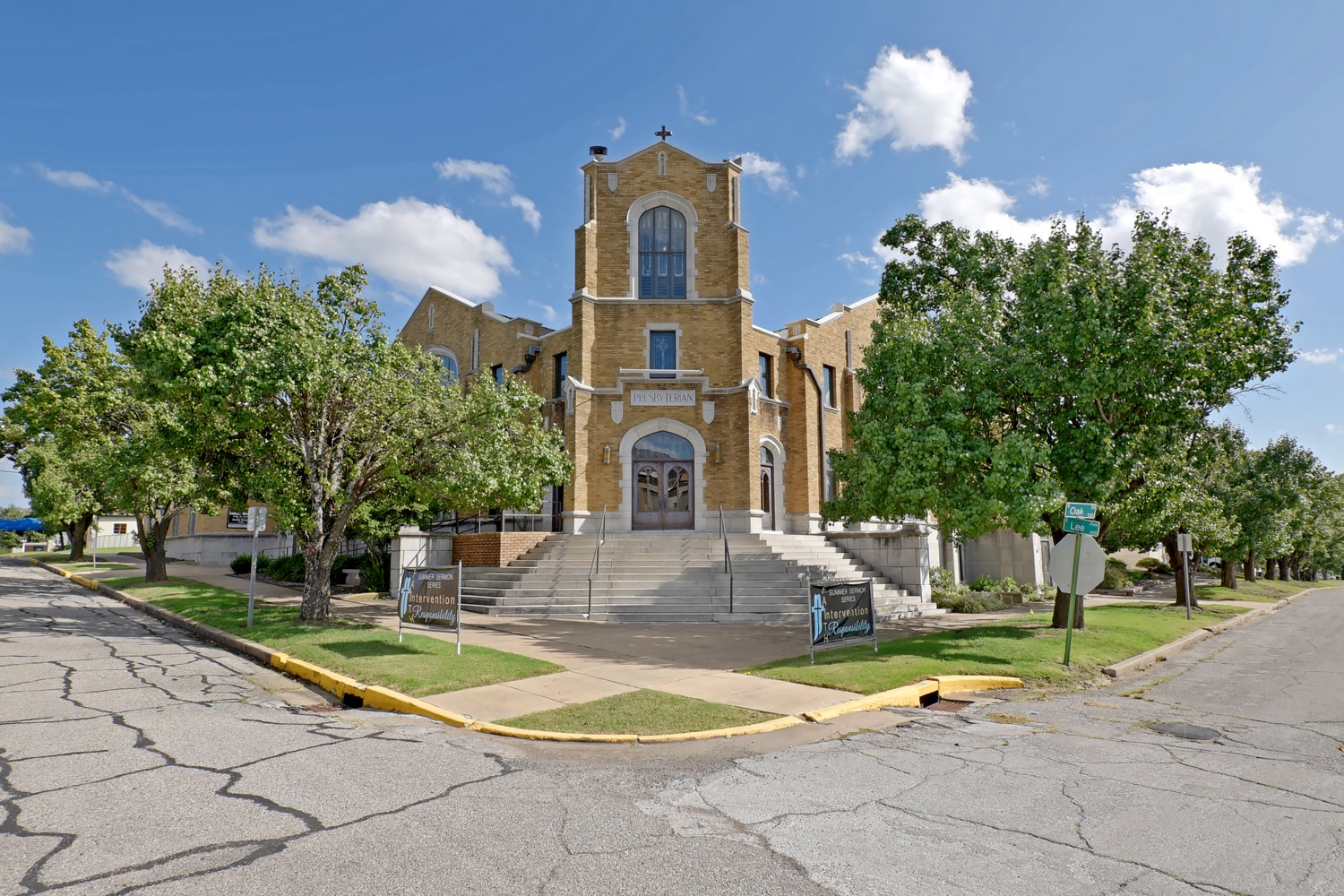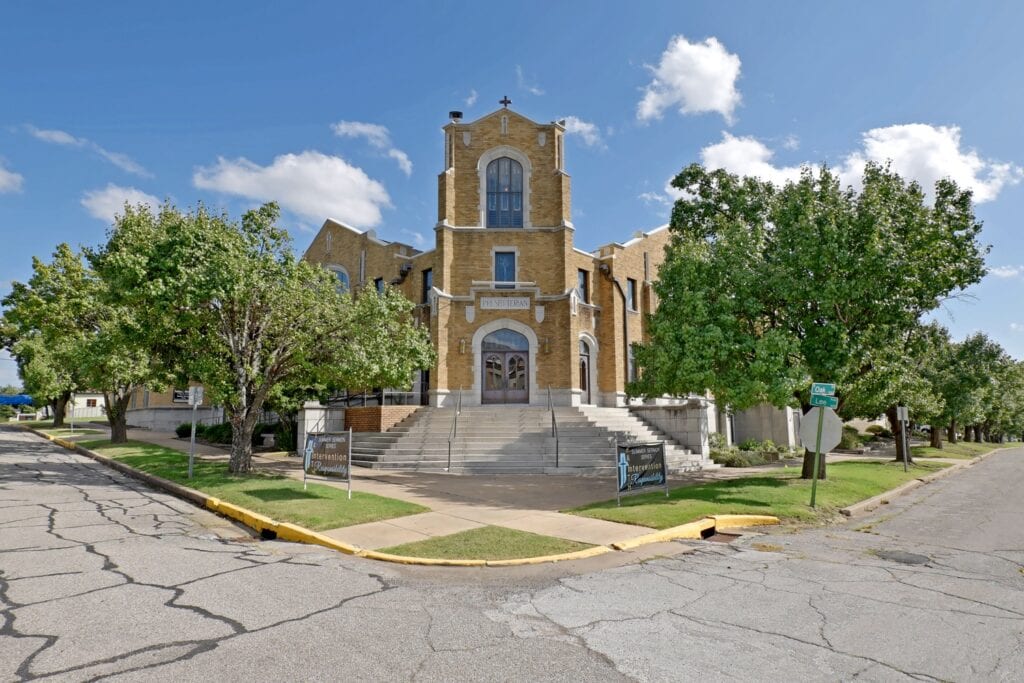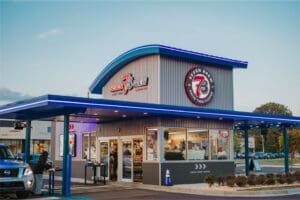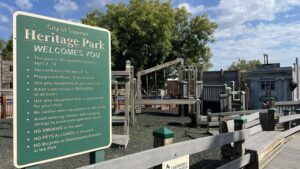“Take a look backward and be worthy of your ancestors and the rich blessings of this church.” —The Reverend Roy C. Smith, D.D.
—
The First Presbyterian Church (FPC) of Sapulpa has shown strength and resiliency during its 125 years of glorifying Christ and building God’s kingdom, surviving merges, splits, and the relentless effects of history and change. Multiple community leaders have called FPC their Church home and it’s responsible for a variety of successful philanthropic projects in town.

At the end of the 19th century, Sapulpa was transformed from a “sleepy little country hamlet” to a busy, bustling, and diverse “commercial center,” according to Clyde McMasters in his book, Witnessing Throughout the Twentieth Century, on the first 100 years of FPC. The town “attracted inhabitants who came with a pioneer spirit to create a new life, as well as a host of the most notorious desperados and gangs of outlaws known on the frontier.”
The early history of Sapulpa embodied three separate but overlapping chapters: the Muscogee (Creek) and Yuchi Indians, the Railroad, and Oil. The first documented appearance of Presbyterianism here was around 1891, as the Railroad chapter was well underway, when mission board members from the Presbyterian Church U.S.A. opened a mission and boarding school for local Yuchi children. An early school superintendent was William A. Sapulpa, son of Chief Sapulpa, both of whom were Presbyterians.
Presbyterian missionary Rev. R.M. Loughridge (for whom nearby Camp Loughridge was named) also began preaching sermons in Sapulpa in 1891, and the church was officially organized in 1895.
The current church building was constructed in 1925, and the first service held in the new sanctuary was on Easter Sunday of 1926. The Memorial Chapel Building, which encompasses the memorial chapel, offices, and nurseries, was completed in 1966. Centennial Hall was built around the 100-year mark in 1995.
FPC is responsible for several philanthropic endeavors in Sapulpa, including Caring Community Friends (known at its inception in 1992 as Community Care) and the Bartlett Academy (began as a nonsectarian church school for special needs children in 1964). The Soup Kitchen, a resounding success, began in 1990 and only ceased within the last few years. Current members hope to bring it back someday.
The Church has had 23 pastors (both interim and full), many associate and youth pastors, organists, music directors, and staff. Several, including a pastor and a few associate pastors and youth pastors have attended Princeton Theological Seminary. Most notably, Rev. Dr. John Nelson, pastor from 1991 to 2008, holds a doctorate from Princeton University. The current interim pastor is Rev. AnnAline Drake.
In the preface to his book, McMasters notes that the term “witnessing” not only refers to a Christian “professing his or her faith to strangers and urging them to accept the Lord as their Savior,” but also “includes faithful worshippers who give of themselves, their talents, and resources to further the work of His Church.” He says that “it is in this category that God’s witnesses at [FPC], over the course of its history, have distinguished themselves as public leaders, expressing their faith in service to the citizens of the city and the state.”
This is evidenced by the fact that, in 1995, “almost one third of the mayors of Sapulpa [were] Presbyterian,” according to McMasters. That number has only grown, as the last three mayors—Doug Haught, Reg Green, and Craig Henderson—are also Presbyterian. Additionally, “many have served as judges, legislators, and members of boards and agencies.” Leadership and service are important to members of this Church community.
Longtime member and lifetime Presbyterian Sue Brose supports that phenomenon, and explains, “First Presbyterian Church Sapulpa is a PCUSA church that is a family of people who love Jesus and strive to live His gospel through service. Being raised a daughter of a Presbyterian pastor I have been infused with its theology and governess my whole life. First Presbyterian exudes the command of God to love everyone and treat people with compassion and kindness.”
FPC celebrated its 125th anniversary with an Open House on November 14 and a special worship service the next day. Former Pastor Rev. Dr. John Nelson and wife Becky appeared via video chat, as they are in El Paso, Texas, a hotbed for the pandemic, and didn’t want to risk exposing members. Former Pastor Wally Johnson and wife Joyce were also in attendance, and he preached one of the messages on Sunday.
Members are thrilled that their beloved church home is still going strong after 125 years to fulfill their mission of serving Christ and ministering to all of God’s people. Brose adds that “attending is like coming home.”
The Church is located on the southeast corner of Oak and Lee Streets. Current sermons and other church information can be found on their website.








